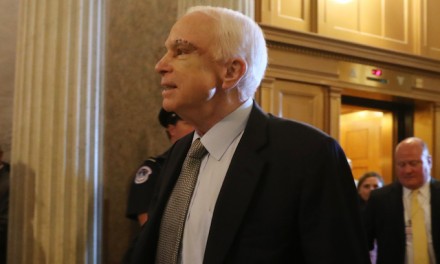Los Angeles may have agreed to wait to host the Summer Olympics, but is the City of Angels making a mistake by having the games at all?
Los Angeles recently agreed to host the Olympics in 2028, giving Paris the rights to host in 2024. Either way, Los Angeles officials think it’s a wonderful opportunity. They also don’t have a problem with a promised advancement of $1.8 billion from the International Olympic Committee (IOC) to increase participation and access to youth sports programs.
“This is an historic day for Los Angeles, for the United States and for the Olympic and Paralympic Movements around the world,” Los Angeles Mayor Eric Garcetti said in a statement published by The Mercury News. “Today, we take a major step toward bringing the Games back to our city for the first time in a generation and begin a new chapter in Los Angeles’ timeless Olympic story.”
Chris Dempsey, former co-chairman of No Boston Olympics, offers a note of caution, saying Los Angeles should be careful.
“Any city that bids on the Olympics needs to have its eyes wide open about what the IOC insists that the city do to host the games, and the most important thing here is the taxpayer guarantee,” Dempsey advises. “The mayor of L.A. is being asked to sign a contract that says the Los Angeles taxpayers are responsible for any cost overruns – and every single Olympics since 1960 has had cost overruns. So effectively, you’re putting Los Angeles taxpayers on the hook for a private, three-week event.”
According to Dempsey, it was cost that brought opposition in Boston to hosting the Olympics.
“In Boston, a small group of very wealthy and connected individuals made a pitch to the mayor here to say that they thought the Olympics should come to Boston and they were going to build a whole bunch of venues to make that happen, and the mayor went along with it,” says Dempsey, co-author of the book No Boston Olympics: How and Why Smart Cities Are Passing on the Torch.
“The bid advanced and was actually chosen by the United States Olympic Committee over bids by San Francisco, Washington, DC, and Los Angeles. So Boston actually beat out Los Angeles in that initial process.”
That was in 2014, and over the course of that year and 2015 Dempsey says Bostonians began to learn more about what the bid would entail and require, and the risk that they were taking on as taxpayers.
“The more they learned about that bid, the less they liked it,” he explains. “Eventually support dropped below 50 percent and the bid was pulled.”
It’s not just Boston, however. Dempsey points to Hamburg, Rome, and Budapest – all major European cities that dropped their bids as well.
“They’ve all pointed to Boston as an example or a recognition of Boston making a smart decision,” he continues. “I think a lot of cities are looking at places like Rio in 2016 or Sochi in 2014 or Athens in 2004, seeing those photos of abandoned venues not being used, seeing the debt and decay that the Olympics have brought to those cities, and [deciding they’ve] got much more important things to be focused on, [and asking] Why put our cities’ future at risk to host a three-week event that might leave us worse off?‘”
Does the fact that Los Angeles hosted the 1984 Olympics make a difference?
“I think people in Los Angeles have very warm memories of the 1984 Olympics, which we would even admit were relatively successful games. But what people in Los Angeles forget is that in 1984 they were the only bidder for the Olympics,” Dempsey responds.
“The other bidder had been Tehran, Iran, which dropped out in the face of the Iranian revolution, so Los Angeles was the only bidder; and as you know, if you show up for an auction and you’re the only bidder, you’re going to get a really good deal.”
Regardless, Dempsey thinks the dynamics and the incentive in that situation were very different than the one Los Angeles is facing today.
“We would not claim to speak for all Bostonians on this issue, but we do think that the bid [in Boston] raised some really fundamental concerns; and again, as Bostonians learned more about that bid, they realized that this was just not a good idea for them,” he says. “We already have world-class universities and sports teams and sporting events, so we never needed the Olympics to put Boston on the map.”
What about things such as infrastructure improvements? Wouldn’t the Olympics bring in revenue?
“There was never a plan to actually upgrade our city’s and our region’s infrastructure, which we would admit needs some upgrading and need some investment,” answers Dempsey. “Boston 2024 did not propose a single dollar of its multibillion-dollar budget going to fix our public transportation system, so it’s hard to see how the bid would have ever have led to improvements in our infrastructure.”
Dempsey admits he is a sports fan, adding he has fond memories of watching “The Dream Team” play in Barcelona in the ’92 Olympics.
“But the model of the IOC was created in the 19th century and it’s never really changed its business model,” he warns. “Unfortunately we have these really negative outcomes in cities around the world, rather than having for example a permanent location where you can build all these venues once and make sure that it was still going to be a great event on television, and it was still going to be a great event to see live, but without all that waste and cost.”
The deal involving Paris and Los Angeles is expected to be approved by the IOC this September.
—-
Copyright American Family News. Reprinted with permission.



















Recent Comments